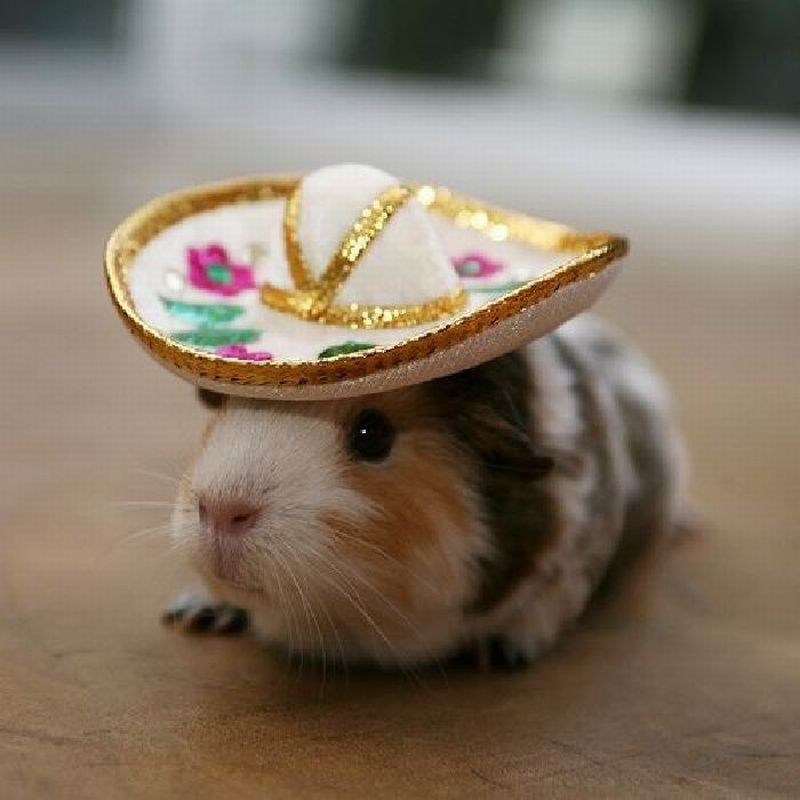Hello everybody! I’ve had another crazy-busy week, so my animal vocabulary in Spanish post got pushed back a few days. We’ve been having a long goodbye party for my roommate, who’s leaving Barcelona. Our neighbors have been very kind about living with the 24-hour party people, but they finally had enough around 5 a.m. this morning and shouted at us. Oops!
Anyway, over the past few weeks I’ve been collecting weird Spanish phrases that have to do with animals. It wasn’t on purpose; they just started turning up. So here’s my new animal vocabulary in Spanish entry, with the literal translation first, then the actual meaning:
“Pata de gallo” = rooster leg
It really means: houndstooth print. Both are pretty weird descriptions!
“Piel de gallina” – chicken skin
It really means: goosebumps. I already knew this one, but unfortunately I got to practice it for the first time in ages this week. It got down to 4 degrees here. FOUR! Fine, that’s Celsius, but I’m deeply unhappy about the weather and considering hibernation.
“Engordar el tigre para que te devore” – fatten the tiger so that it devours you later
It really means: Contributing to your own downfall.
It was in the headlines this week because of the Catalan elections. The president of the Generalitat, Artus Mas, called special elections to make his push for independence stronger and try to get an absolute majority in the parliament. He ended up losing 12 seats. It was especially painful because he’d had these smug campaign posters all over the city (it says “the will of the people”):
Oops!
“Mejor ser cabeza de ratón que cola de león” – It’s better to be a rat’s head than a lion’s ass.
It really means: The closest English translation I found is ‘big fish in a small pond’. I also found ‘better to be queen of bees than king of fleas’ (though I’d never heard that one).
“Con el dinero baila el perro” – with money the dog will dance
It really means: anything is possible. But I wish it meant this:
“Hacer el lemur” – to do the lemur
It really means: cuddling! You know that way lemurs cling on to things? It’s that kind of snuggling. And think about the lemur’s eyes too – it means somebody is asleep all night with their eyes wide open, too nervous to touch their snuggling partner. I think this is a fairly uncommon phrase, but it does have its own Facebook fan page.
“Si quieres el perro, acepta las pulgas’ – if you want the dog, accept the fleas
It really means: This one is pretty straightforward – it’s talking about accepting the whole package, good and bad. Fellow Barcelona blogger Prithika’s site Fleas and Dogs in Barcelona is named after this saying.
And now, my favorite….
“Hacer la cobra” – to do the cobra
It really means: Okay, think of that swaying movement a cobra makes. Now look at this picture:
That’s ‘hacer la cobra’.
Plus, here’s some bonus animal vocabulary in Spanish:
- You can use ‘conejillo de Indias’ (guinea pig) in the same way you can in English to describe test subjects. ‘Oveja negra’ (black sheep) works in both languages too.
- You can also say ‘un lobo con piel de cordero’, which is literally ‘a wolf in sheep’s skin’, so that’s almost a direct translation too.
- Instead of ‘it’s raining cats and dogs’, you say ‘hace un tiempo de perros’
- Did you know that animals make different sounds in Spanish? A dog goes ‘guau guau’, a chick goes ‘pío pío’, a horse says ‘jiiii’, and my favorite, the rooster, says ‘kikiriki’!
Anybody else know some fun Spanish animal vocabulary?
Besos!
-Jess







Haha this is hilarious! Love it
Thanks! You have to find some out too when you go to Panama. 😀
Cabeza de Cobra is my absolute Faaaavorite! Yes, with a capital F! I’ve done a few of these posts and they always make me shake my head at castellano.
Been meaning to write you – I want to give my parents and sister a cool gift by way of something cool to do in BCN, even if it’s just a great paella meal. any suggestions? My mom and sis don’t do seafood, so it would have to be a chicken one!
Haha I know, it just describes the action so perfectly!
Hmm…paella. There are a few places, so I’ll email you a list (you can send me your preferred e-mail address to holayessica@gmail.com). Actually, I’ll take a few days to think about and look up cool stuff going on that would be good Barcelona gifts. Didn’t you say you guys were coming at the end of the month?
I like this one – “Mejor ser cabeza de ratón que cola de león” I’ve only heard a few of these. Love the post 🙂
I like that one too! I love finding out these weird phrases in Spanish, they just make me smile.
hahaha – I love the dancing dog!
Me too! It’s actually begging for turkey. Maybe you can train the cats to do that?
Hysterical. My apartment has no central heating so I have had ‘piel de gallina’ nonstop for the last week, kikirikiiii!
Oh no! Better find somebody to ‘hacer el lemur’ with! 😉
P.S. they sell pretty cheap portable room heaters that do a nice job of warming things up.
I love languages and cultural quirks so I loved this post! Especially the accompanying photos, some of them are too funny!
Thanks very much, I love them too! Spanish is full of these weird phrases, and they never fail to make me smile.
Hola Jessica! Thank you for the post – really liked it a lot! I have some phrases in Spanish that use animals in them, too:
Lágrimas de cocodrilo
A caballo regalado, no se le miran los dientes.
Perro que ladra no muerde
Un gato encerrado
De noche todos los gatos son pardos
No vendas la piel del oso antes de cazarlo.:)
These are quite common phrases we can use everyday.
Thanks very much! We use a lot of those in English too, and I had no idea! We say:
Crocodile tears
Don’t look a gift horse in the mouth
All bark and no bite
I like the oso one, and I learned the ‘gatos pardos’ on a trip to Salamanca. 🙂
What context do you use ‘un gato encerrado’ in?
Yes, actually I think those are international phrases . We use a lot in Russian too. El gato encerrado is used when there’s a double (usually bad) intention in some at first obvious deed or thing. The closest English translation would be : there’s something fishy about it , or: I smell the rat….example: el gobierno dice que bajara los impuestos 20% el síguente año – no se, me parece que hay un gato encerrado aquí.
Hope it was clear:) have a great WE!
Ahhh, got it! Thanks very much. That’s so interesting. And how cool they use them in Russian too!
I like learning new expressions, bonus for reading blogs and learning new expressions in Castellano!
really liking the new layout, I thought for a moment you had switchd to self hosting/changed to wordpress.org by the look of it but see your url is the same. Random: wordpress no longer alerts me when you respond to comments on your blog…
Thanks!
And thanks re: the layout. I keep thinking about moving to self-hosting, but it seemed a little intimidating for now, so this is just a free WordPress layout. Weird about the comments, I’ll have to look into that.
LOVE this post! Calling someone a “cabra” (goat) is like telling them they are crazy in an endearing way.
Also I am amazed that yours is a free WordPress layout and has me reconsidering my layout!
Ooh I learned the ‘cabra’ one JUST after I posted this, I love it!
I was so pleased to find the layout for free. There are a couple with that article slider at the top for free, and they all look pretty nice.